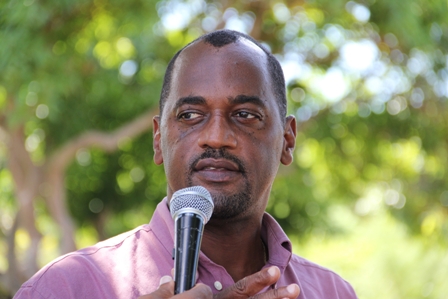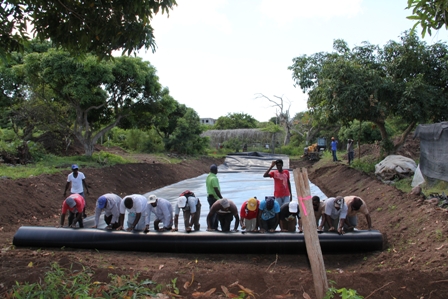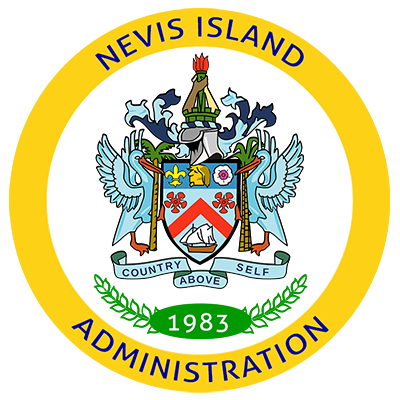Nevis Administration introduces aquaculture to Nevis Farmers and Fishers

NIA CHARLESTOWN NEVIS (September 21, 2012) — The Ministry and Department of Agriculture in the Nevis Island Administration (NIA) have embarked on a new pilot project at its Prospect farm, this time the introduction of aquaculture for the benefit of the island’s farmers and fishers.
Permanent Secretary in the Ministry of Agriculture Dr. Kelvin Daly in a recent interview with the Department of Information noted that the project was planned one year ago for several reasons.
“It is our first serious attempt at doing a pilot project on aquaculture we will be farming tilapia in this unit. The whole programme from its conception about one year ago was to satisfy three objectives. The first one was to introduce this technology to our residents on Nevis as a way of introducing new way of making some money.
“The second thing is to release some pressure off the near shore fisheries we have in our waters. It’s under tremendous pressure we have more and more guys going fishing because the economy is such as that and so we are trying to fill a gap. The last thing of course, is that we are trying to offset the importation of fish (tilapia)…We are seeing a dramatic rise in the importation of fish for various reasons and so this pilot project here is to put some…direction into our fisheries for the near future,” he said.
However, Dr. Daly said the pilot project was not meant to replace fishers but the hope was that they would be drawn to the new technology, realise it would be cheaper to fish on land and the ease it provided. As a result, the cost of fish would be lowered making it more affordable for lower income families to provide a source of good fish protein on the plate.
The top Agriculture Official used the opportunity to urge persons to see the bigger picture the project would provide as it related to the food security of Nevis and the enhancement of livelihoods.
“Being a new area, it creates of course new employment, new employment opportunities, and new investment opportunities. Like I said, this is a technology that anybody can do with the right inputs…
“It is a sustainable living for us and one of the bigger issues is trying to be self sufficient as possible. In our island Nation importing fish was never part of our history, it was never part of our culture. Now we are so heavy into it, we don’t want to lose perspective. So if we are buying fish from Vietnam which is on the others side of the world all the way to little Nevis, what makes us so incompetent that we cannot do it here? ,” he questioned.
Dr. Daly added that it was important to show the people of Nevis that they too could be successful at aquaculture and the project would tie into the proposed Fisheries Complex in Charlestown.
“We have the track record of doing things introducing new technologies and this project here not only puts food on our table it puts money in your pocket.
The Permanent Secretary described Aquaculture as a very dynamic discipline which could take the form of onshore or offshore fish farming and spoke of their capabilities.
“Aquaculture can take the form of onshore fish farming where you excavate the ponds or have natural ponds or you can have it off shore in deep water, ocean water depending on the species you are trying to farm.
 “You can do crustaceans like crayfish or you can do tilapia or pompano what we call Cobbler, we can do Cobia or we can do what we call the American Snapper what which is a Red Drum so the variation of species you can farm. In North America it’s mostly Salmon but in tropical areas we tend to stick to species that can survive our conditions,” he said.
“You can do crustaceans like crayfish or you can do tilapia or pompano what we call Cobbler, we can do Cobia or we can do what we call the American Snapper what which is a Red Drum so the variation of species you can farm. In North America it’s mostly Salmon but in tropical areas we tend to stick to species that can survive our conditions,” he said.
In terms of maintenance of the Prospect pilot project, he explained that would be minimal.
“The cost for maintenance is almost zero. Once you have put down your liners properly, you fill your tanks it’s just for you to come periodically to check the ph of your water, check your water temperature, check for any leakage, check the quality of fish, make sure you don’t see and diseases like tail rot or fin rot, basic things but it is not every day you have to come. It is less intense with the kind of method we are using,” he said.
